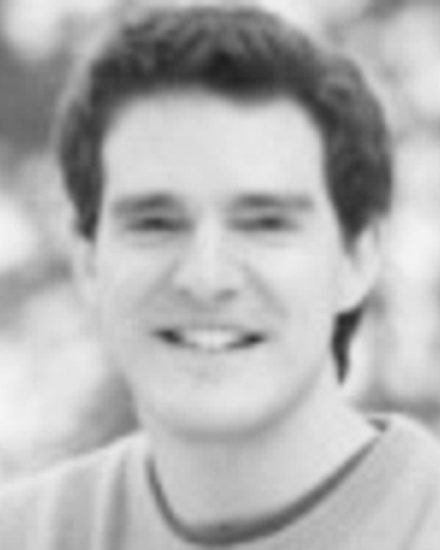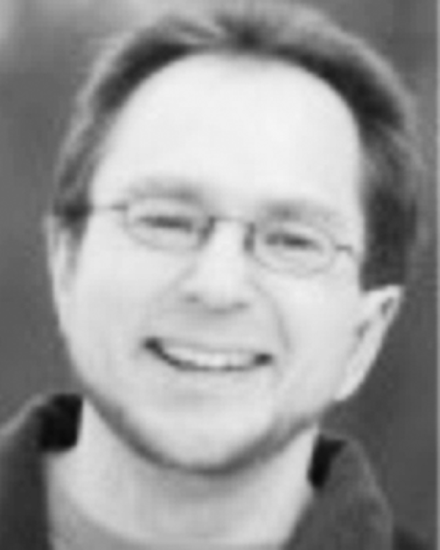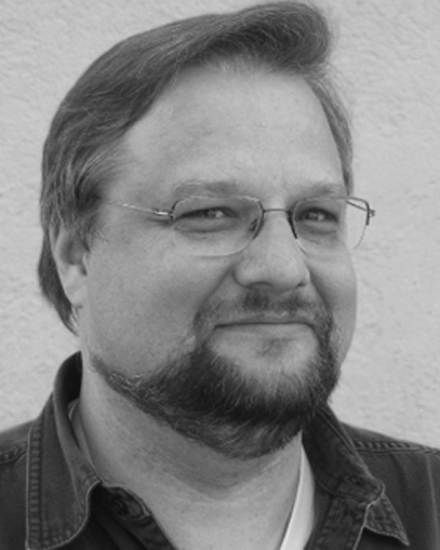Abstract:
Cortical neuroprostheses that employ repeated electrical stimulation of cortical areas with fixed stimulus parameters, are faced with the problem of large trial-by-trial ...Show MoreMetadata
Abstract:
Cortical neuroprostheses that employ repeated electrical stimulation of cortical areas with fixed stimulus parameters, are faced with the problem of large trial-by-trial variability of evoked potentials. This variability is caused by the ongoing cortical signal processing, but it is an unwanted phenomenon if one aims at imprinting neural activity as precisely as possible. Here, we use local field potentials measured by one microelectrode, located at a distance of 200 microns from the stimulation site, to drive the electrically evoked potential toward a desired target potential by real-time adaptation of the stimulus intensity. The functional relationship between ongoing cortical activity, evoked potential, and stimulus intensity was estimated by standard machine learning techniques (support vector regression with problem-specific kernel function) from a set of stimulation trials with randomly varied stimulus intensities. The smallest deviation from the target potential was achieved for low stimulus intensities. Further, the observed precision effect proved time sensitive, since it was abolished by introducing a delay between data acquisition and stimulation. These results indicate that local field potentials contain sufficient information about ongoing local signal processing to stabilize electrically evoked potentials. We anticipate that adaptive low intensity microstimulation will play an important role in future cortical prosthetic devices that aim at restoring lost sensory functions.
Published in: IEEE Transactions on Biomedical Engineering ( Volume: 58, Issue: 5, May 2011)

Department of Cognitive Neurology, Hertie Institute of Clinical Brain Research, University of Tübingen, Germany
Dominik Brugger received the diploma and the Ph.D. degree in bioinformatics, in 2005 and 2010, respectively, from Eberhard-Karls Universität, Tübingen, Germany.
He is currently working as a post-doc in the Department of Cognitive Neurology at the Hertie Institute for Clinical Brain Research, Tübingen, Germany. His research interests comprise machine learning algorithms, kernel methods and their application in the context o...Show More
Dominik Brugger received the diploma and the Ph.D. degree in bioinformatics, in 2005 and 2010, respectively, from Eberhard-Karls Universität, Tübingen, Germany.
He is currently working as a post-doc in the Department of Cognitive Neurology at the Hertie Institute for Clinical Brain Research, Tübingen, Germany. His research interests comprise machine learning algorithms, kernel methods and their application in the context o...View more

Department of Cognitive Neurology, Hertie Institute of Clinical Brain Research, University of Tübingen, Germany
Sergejus Butovas received the B.Sc. degree in experimental biology in 1998, and the Master's degree in 2000, respectively, from Vilnius University (Lithuania). He joined doctoral program at Tübingen University, Germany, which he accomplished in 2007.
At present, he works at Hertie Institute for Brain Research, Germany, in the Department of Cognitive Neurology on active perception of intracortical microstimulation in rats f...Show More
Sergejus Butovas received the B.Sc. degree in experimental biology in 1998, and the Master's degree in 2000, respectively, from Vilnius University (Lithuania). He joined doctoral program at Tübingen University, Germany, which he accomplished in 2007.
At present, he works at Hertie Institute for Brain Research, Germany, in the Department of Cognitive Neurology on active perception of intracortical microstimulation in rats f...View more

Institute of Computer Science, Department of Computer Engineering, University of Leipzig, Leipzig, Germany
Martin Bogdan received the engineer diploma in signal engineering from the Fachhochschule Offenburg, Offenburg, Germany, in 1993, and the engineer diploma in industrial informatics and instrumentation from the Université Joseph Fourier Grenoble, Grenoble, France, in 1993. In 1998, he received the Ph.D. degree in computer science (computer engineering) from the University of Tübingen, Tübingen, Germany.
He joined the Depart...Show More
Martin Bogdan received the engineer diploma in signal engineering from the Fachhochschule Offenburg, Offenburg, Germany, in 1993, and the engineer diploma in industrial informatics and instrumentation from the Université Joseph Fourier Grenoble, Grenoble, France, in 1993. In 1998, he received the Ph.D. degree in computer science (computer engineering) from the University of Tübingen, Tübingen, Germany.
He joined the Depart...View more

Department of Cognitive Neurology, Hertie Institute of Clinical Brain Research, University of Tübingen, Germany
Cornelius Schwarz received the MD and Ph.D. degrees from the University Tübingen, Germany, in 1991 and 1993.
He was a post-doc at NYU Medical School from 1996 to 1999. He was a Group Leader (1999), Assistant Professor (2002), and now holds the Professorship for Systems Neurophysiology at the Medical School University Tübingen, Germany. His actual scientific interest comprises sensorimotor and cognitive processing by neocor...Show More
Cornelius Schwarz received the MD and Ph.D. degrees from the University Tübingen, Germany, in 1991 and 1993.
He was a post-doc at NYU Medical School from 1996 to 1999. He was a Group Leader (1999), Assistant Professor (2002), and now holds the Professorship for Systems Neurophysiology at the Medical School University Tübingen, Germany. His actual scientific interest comprises sensorimotor and cognitive processing by neocor...View more

Department of Cognitive Neurology, Hertie Institute of Clinical Brain Research, University of Tübingen, Germany
Dominik Brugger received the diploma and the Ph.D. degree in bioinformatics, in 2005 and 2010, respectively, from Eberhard-Karls Universität, Tübingen, Germany.
He is currently working as a post-doc in the Department of Cognitive Neurology at the Hertie Institute for Clinical Brain Research, Tübingen, Germany. His research interests comprise machine learning algorithms, kernel methods and their application in the context of cortical sensory neuro-prostheses.
Dominik Brugger received the diploma and the Ph.D. degree in bioinformatics, in 2005 and 2010, respectively, from Eberhard-Karls Universität, Tübingen, Germany.
He is currently working as a post-doc in the Department of Cognitive Neurology at the Hertie Institute for Clinical Brain Research, Tübingen, Germany. His research interests comprise machine learning algorithms, kernel methods and their application in the context of cortical sensory neuro-prostheses.View more

Department of Cognitive Neurology, Hertie Institute of Clinical Brain Research, University of Tübingen, Germany
Sergejus Butovas received the B.Sc. degree in experimental biology in 1998, and the Master's degree in 2000, respectively, from Vilnius University (Lithuania). He joined doctoral program at Tübingen University, Germany, which he accomplished in 2007.
At present, he works at Hertie Institute for Brain Research, Germany, in the Department of Cognitive Neurology on active perception of intracortical microstimulation in rats for purposes of neuroprosthesis.
Sergejus Butovas received the B.Sc. degree in experimental biology in 1998, and the Master's degree in 2000, respectively, from Vilnius University (Lithuania). He joined doctoral program at Tübingen University, Germany, which he accomplished in 2007.
At present, he works at Hertie Institute for Brain Research, Germany, in the Department of Cognitive Neurology on active perception of intracortical microstimulation in rats for purposes of neuroprosthesis.View more

Institute of Computer Science, Department of Computer Engineering, University of Leipzig, Leipzig, Germany
Martin Bogdan received the engineer diploma in signal engineering from the Fachhochschule Offenburg, Offenburg, Germany, in 1993, and the engineer diploma in industrial informatics and instrumentation from the Université Joseph Fourier Grenoble, Grenoble, France, in 1993. In 1998, he received the Ph.D. degree in computer science (computer engineering) from the University of Tübingen, Tübingen, Germany.
He joined the Department of Computer Engineering at the University of Tübingen, in 1994, where he heads the research group NeuroTeam since 2000. This research group deals mainly with signal processing based on artificial neural nets and machine learning focussed on but not limited to bio-medical applications. From winter term 2005/06 until winter term 2007/08 he was Substitute Professor for computer engineering at the University of Leipzig. Since April 2008, he holds the Professorship for computer engineering at the University of Leipzig, Germany.
Martin Bogdan received the engineer diploma in signal engineering from the Fachhochschule Offenburg, Offenburg, Germany, in 1993, and the engineer diploma in industrial informatics and instrumentation from the Université Joseph Fourier Grenoble, Grenoble, France, in 1993. In 1998, he received the Ph.D. degree in computer science (computer engineering) from the University of Tübingen, Tübingen, Germany.
He joined the Department of Computer Engineering at the University of Tübingen, in 1994, where he heads the research group NeuroTeam since 2000. This research group deals mainly with signal processing based on artificial neural nets and machine learning focussed on but not limited to bio-medical applications. From winter term 2005/06 until winter term 2007/08 he was Substitute Professor for computer engineering at the University of Leipzig. Since April 2008, he holds the Professorship for computer engineering at the University of Leipzig, Germany.View more

Department of Cognitive Neurology, Hertie Institute of Clinical Brain Research, University of Tübingen, Germany
Cornelius Schwarz received the MD and Ph.D. degrees from the University Tübingen, Germany, in 1991 and 1993.
He was a post-doc at NYU Medical School from 1996 to 1999. He was a Group Leader (1999), Assistant Professor (2002), and now holds the Professorship for Systems Neurophysiology at the Medical School University Tübingen, Germany. His actual scientific interest comprises sensorimotor and cognitive processing by neocortex, and its application for future cortical sensory neuroprostheses.
Cornelius Schwarz received the MD and Ph.D. degrees from the University Tübingen, Germany, in 1991 and 1993.
He was a post-doc at NYU Medical School from 1996 to 1999. He was a Group Leader (1999), Assistant Professor (2002), and now holds the Professorship for Systems Neurophysiology at the Medical School University Tübingen, Germany. His actual scientific interest comprises sensorimotor and cognitive processing by neocortex, and its application for future cortical sensory neuroprostheses.View more


